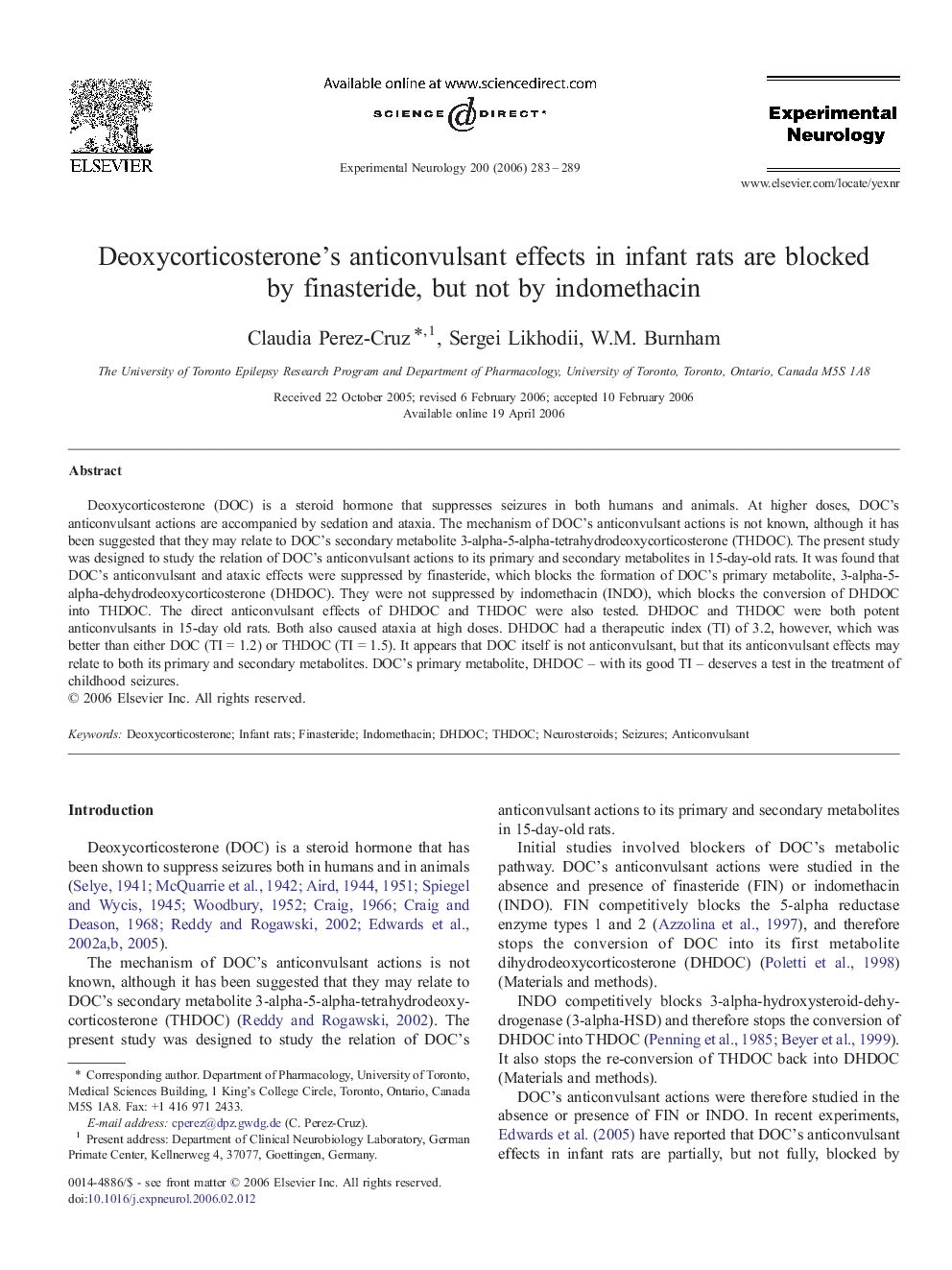| کد مقاله | کد نشریه | سال انتشار | مقاله انگلیسی | نسخه تمام متن |
|---|---|---|---|---|
| 3057064 | 1580197 | 2006 | 7 صفحه PDF | دانلود رایگان |

Deoxycorticosterone (DOC) is a steroid hormone that suppresses seizures in both humans and animals. At higher doses, DOC's anticonvulsant actions are accompanied by sedation and ataxia. The mechanism of DOC's anticonvulsant actions is not known, although it has been suggested that they may relate to DOC's secondary metabolite 3-alpha-5-alpha-tetrahydrodeoxycorticosterone (THDOC). The present study was designed to study the relation of DOC's anticonvulsant actions to its primary and secondary metabolites in 15-day-old rats. It was found that DOC's anticonvulsant and ataxic effects were suppressed by finasteride, which blocks the formation of DOC's primary metabolite, 3-alpha-5-alpha-dehydrodeoxycorticosterone (DHDOC). They were not suppressed by indomethacin (INDO), which blocks the conversion of DHDOC into THDOC. The direct anticonvulsant effects of DHDOC and THDOC were also tested. DHDOC and THDOC were both potent anticonvulsants in 15-day old rats. Both also caused ataxia at high doses. DHDOC had a therapeutic index (TI) of 3.2, however, which was better than either DOC (TI = 1.2) or THDOC (TI = 1.5). It appears that DOC itself is not anticonvulsant, but that its anticonvulsant effects may relate to both its primary and secondary metabolites. DOC's primary metabolite, DHDOC – with its good TI – deserves a test in the treatment of childhood seizures.
Journal: Experimental Neurology - Volume 200, Issue 2, August 2006, Pages 283–289